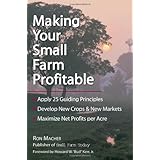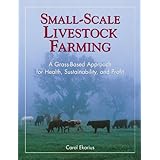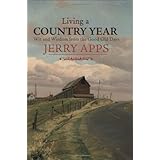
Average Reviews:

(More customer reviews)Are you looking to buy
Making Your Small Farm Profitable: Apply 25 Guiding Principles/Develop New Crops & New Markets/Maximize Net Profits Per Acre? Here is the right place to find the great deals. we can offer
discounts of up to 90% on
Making Your Small Farm Profitable: Apply 25 Guiding Principles/Develop New Crops & New Markets/Maximize Net Profits Per Acre. Check out the link below:
>> Click Here to See Compare Prices and Get the Best Offers
Making Your Small Farm Profitable: Apply 25 Guiding Principles/Develop New Crops & New Markets/Maximize Net Profits Per Acre ReviewFirst, let me begin by saying what this book is not. This book gives zero advice to practicing small or large farmers on how to turn a profit. This book is not a how-to guide for those starting out. Nor is it a step-by-step method on how to get rich by working the land. If that were the case, then every small farmer in America would have read the book and gotten wealthy, instead of banks and other creditors foreclosing on family farms and putting them on the auctioning block.
Now, let me elaborate on what this book really is. This book is a very polite warning by two very seasoned, jaded individuals who are aware of the escapist notions and romantic fantasies many people have about farming. They have been around long enough to have become intimately familiar with the Back to the Land Movement, a Return to Simplicity, and Environmental Sustainability/Sustainable Agriculture- aka The New Improved Agriculture. It took me a while to realize this (three readings in fact!) and understand the dangers associated with one pernicious stereotype about farming.
Many of us on the sidelines believe that anyone can farm, and all it takes is a willingness to work hard (the trite saying about hard-working ditch diggers getting rich comes readily to mind). When we think of the farmer, we often have one (malicious) stereotype in mind- that of the dumb country boy with a 'gee aw shucks' outlook on farming and life. Basically, we really do not think it takes brains in order to farm successfully. I mean, after all, you take some seeds, toss in a little fertilizer of your choice, water them and come back in a few months to collect your crop and get your pesos (almost literally)- just how hard could that be?
Well, speaking as someone who is thoroughly new to farming, never once has farmed, and is inquisitive about the practice of agriculture, after considerable investigation I can tell you the prospective reader that no matter how hard they work, dumb people will not be able to stay on the farm for long. We on the sidelines do not think farming is difficult because we do not think about the Practice of Farming and the Business of Farming. If your experience of farming up to this point is shopping at your local natural foods co-op, perusing the stalls at the local weekly farmer's market, or wandering the aisles at some trendy, eco-hip retailer like Whole Foods or Wilds Oats (who have skillfully co-opted environmentalism as a path to insane riches), and you are considering going into farming as a vocation, then I do not think you will hear the polite warning contained in this book. If you are someone stuck in a dead-end or high-paying but otherwise unfulfilling career (like this reviewer), and you are seeking an out, a means of escape (what we politely but laughingly call a 'transition'), then you just might catch the polite warning consistently stated throughout this book.
Farming attracts many people not because of its business or financial aspects but because of the lifestyle many people associate with farming. If you are an MD, then you are in the business of healthcare. Your business and your lifestyle are completely different. In fact, whether your business is highly successful or modestly successful, your lifestyle could be lavish, it could be modest, or it could be parsimonious- it's up to you and your personal preferences. If you don't like your current situation, from where you work, to who you work for (read HMOs) to your clientele base, you can make a change without changing your lifestyle- too much that is.
Now here is the polite warning: if you are drawn to farming because of the lifestyle, and you turn this lifestyle into a business, then it behooves you to make damn certain that your business can pay for itself, because after all, your business is your lifestyle and your lifestyle is your business. The lifestyle will not work out if the business end does not pay. In fact, the business end may place quite severe limitations on the lifestyle you can reasonably expect to achieve, which in many cases will be well below what you are currently accustomed to. Unlike a 9 to 5 gig with some godless multinational, you can not simply just pack up and leave (this assumes implicitly that the heartless .......... have not fired you in the latest round of restructurings), and if the business end does not work out, you lose not only your lifestyle, but also your home.
For me, the true heart of the book and the real message of the text were contained in the Foreword by Budd Kerr Jr and Part I- Getting Started. In terms of content, the book contains little on the techniques of farming, and has eleven chapters divided into four parts- Getting Started, Farming, Planning and Marketing, and Management, with a handy appendix chock full of useful resources on the Business and Practice of Farming. The text is specifically pitched at a level that almost anyone can understand, and there is a noticeable bias towards the environmentally minded reader.
That said, the true purpose of this book is to get you, the prospective reader who may be thinking of getting into farming, to start thinking about the Practice of Farming and the Business of Farming, all romanticism and eco-hip verbiage aside. This book is of no use to someone who is already farming, and in need of help. The best time to read this book is before you get into farming whole hog as they say down on the farm.
Even though it took me three passes to finally get the message, I am glad that I did read it before taking any action.
Read this book several times BEFORE you venture into farming, not during or after.
Making Your Small Farm Profitable: Apply 25 Guiding Principles/Develop New Crops & New Markets/Maximize Net Profits Per Acre OverviewWant to learn more information about
Making Your Small Farm Profitable: Apply 25 Guiding Principles/Develop New Crops & New Markets/Maximize Net Profits Per Acre?
>> Click Here to See All Customer Reviews & Ratings Now




